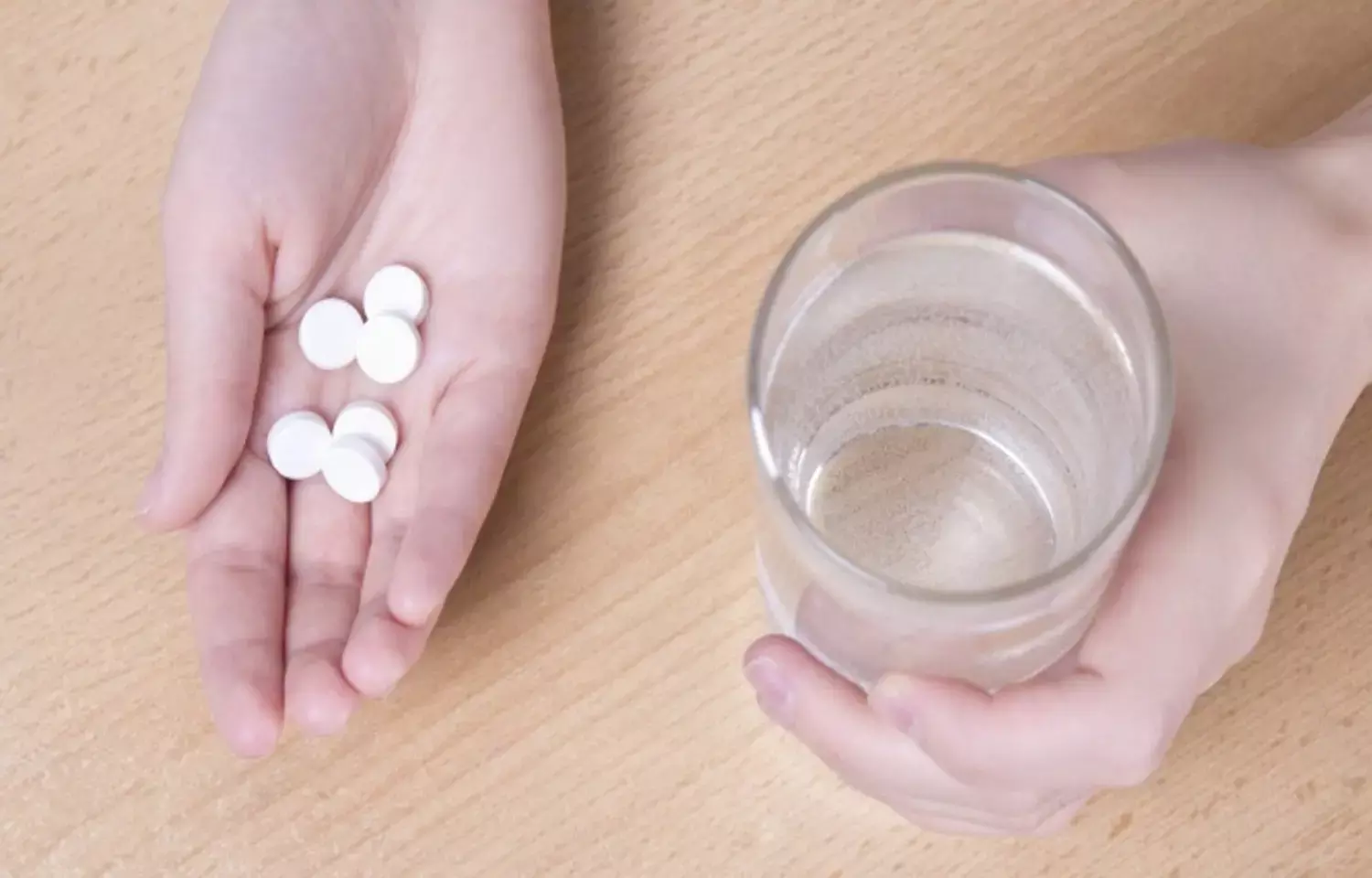- Home
- Medical news & Guidelines
- Anesthesiology
- Cardiology and CTVS
- Critical Care
- Dentistry
- Dermatology
- Diabetes and Endocrinology
- ENT
- Gastroenterology
- Medicine
- Nephrology
- Neurology
- Obstretics-Gynaecology
- Oncology
- Ophthalmology
- Orthopaedics
- Pediatrics-Neonatology
- Psychiatry
- Pulmonology
- Radiology
- Surgery
- Urology
- Laboratory Medicine
- Diet
- Nursing
- Paramedical
- Physiotherapy
- Health news
- Fact Check
- Bone Health Fact Check
- Brain Health Fact Check
- Cancer Related Fact Check
- Child Care Fact Check
- Dental and oral health fact check
- Diabetes and metabolic health fact check
- Diet and Nutrition Fact Check
- Eye and ENT Care Fact Check
- Fitness fact check
- Gut health fact check
- Heart health fact check
- Kidney health fact check
- Medical education fact check
- Men's health fact check
- Respiratory fact check
- Skin and hair care fact check
- Vaccine and Immunization fact check
- Women's health fact check
- AYUSH
- State News
- Andaman and Nicobar Islands
- Andhra Pradesh
- Arunachal Pradesh
- Assam
- Bihar
- Chandigarh
- Chattisgarh
- Dadra and Nagar Haveli
- Daman and Diu
- Delhi
- Goa
- Gujarat
- Haryana
- Himachal Pradesh
- Jammu & Kashmir
- Jharkhand
- Karnataka
- Kerala
- Ladakh
- Lakshadweep
- Madhya Pradesh
- Maharashtra
- Manipur
- Meghalaya
- Mizoram
- Nagaland
- Odisha
- Puducherry
- Punjab
- Rajasthan
- Sikkim
- Tamil Nadu
- Telangana
- Tripura
- Uttar Pradesh
- Uttrakhand
- West Bengal
- Medical Education
- Industry
Concomitant use of thyroxin and PPI increases TSH in primary hypothyroidism: Study

UK: The concomitant use of proton pump inhibitor (PPI) and levothyroxine (LT4) significantly increases thyroid-stimulating hormone (TSH) concentration in patients with primary hypothyroidism, finds a recent review The findings are published in the Journal of General Internal Medicine.
The management of primary hypothyroidism with LT4 is safe and effective and most patients reported improvement in well-being on initiation of the treatment. However, some patients continue to suffer from symptoms despite achieving an adequate biochemical correction. The management of such patients has been matter of controversy and of considerable public interest.
Yuli Guzman-Prado, International Centre for Medical Research, Dorset, UK, and colleagues aimed to assess the effect of concomitant use of LT4 and PPIs on the levels of TSH in primary hypothyroidism patients.
For the purpose, the researchers performed a systematic review of interventional and observational studies that compared TSH levels before and after concomitant use of LT4 and PPI. It included articles published upto September 1, 2019.
Study quality was assessed with the Newcastle–Ottawa quality assessment scale for observational studies and the Risk Of Bias In Non-randomized Studies – of Interventions (ROBINS-I) tool was used.
The researchers identified five thousand twelve discrete articles, out of which seven studies met the eligibility criteria and were included.
Key findings of the study include:
- There was a considerable heterogeneity among the included studies in design, sample size, inclusion and exclusion criteria, treatment regimen, and baseline demographics.
- Each of the included studies showed an increase in TSH levels following LT4 and PPI consumption, and in the majority of these, the increase was statistically significant.
"We found that concomitant use of LT4 and PPI showed a significant increase in TSH concentration," wrote the authors. "However, given the small number of studies, further research is needed to clarify the interfering role of PPI on LT4 intestinal absorption."
The study titled, "Concomitant Use of Levothyroxine and Proton Pump Inhibitors in Patients with Primary Hypothyroidism: a Systematic Review," is published in the Journal of General Internal Medicine.
DOI: https://link.springer.com/article/10.1007/s11606-020-06403-y
Dr Kamal Kant Kohli-MBBS, DTCD- a chest specialist with more than 30 years of practice and a flair for writing clinical articles, Dr Kamal Kant Kohli joined Medical Dialogues as a Chief Editor of Medical News. Besides writing articles, as an editor, he proofreads and verifies all the medical content published on Medical Dialogues including those coming from journals, studies,medical conferences,guidelines etc. Email: drkohli@medicaldialogues.in. Contact no. 011-43720751


